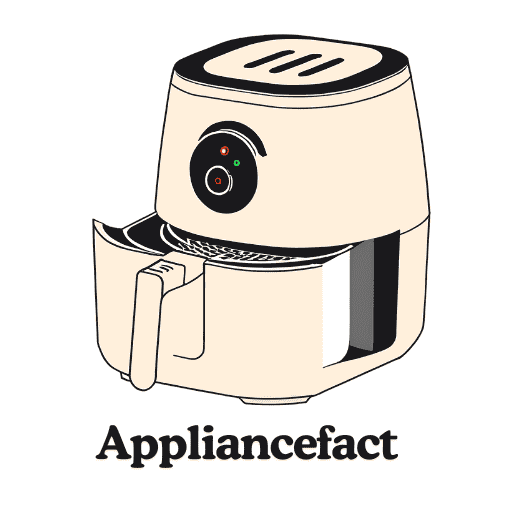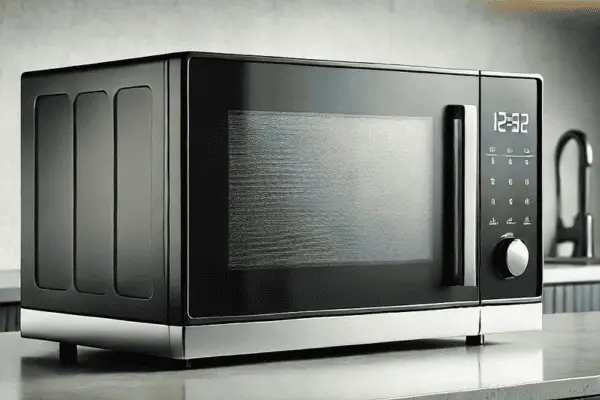Microwave ovens are the unsung heroes of our kitchens, zapping our leftovers to life in just minutes. But have you ever wondered how long microwave ovens last? Whether moving into your first apartment or simply trying to get more mileage from your current appliance, understanding a microwave’s lifespan is key.
Over the years, I’ve learned a thing or two about making these little workhorses last—and trust me, it’s easier than you think! In this guide, we’ll dive into the lifespan of a microwave, signs it’s time to replace it, and how to care for it so it stays in tip-top shape. So, let’s get started!
Contents
Average Lifespan of a Microwave Oven
Regarding microwaves, expect them to last somewhere between 8 to 12 years. Sounds pretty good. But here’s the thing—just like a car or even a pair of sneakers, how you use and take care of your microwave can impact how long it sticks around. If you’re a single person who uses it occasionally, you could be looking at that 12-year mark. But if you’re a busy family reheating leftovers every other minute, don’t be surprised if it leans more toward 8 years.
The brand plays a role, too. You’ll find that high-end models (think brands like Wolf or Viking) can last much longer than cheaper ones. But no matter the brand, maintenance is key. A little cleaning here and there, ensuring the microwave doesn’t overheat, and avoiding the temptation to nuke everything in plastic can add years to its life. Treat it right; your microwave might surprise you with a few extra years of service.
Factors That Affect the Longevity of a Microwave
When it comes to your microwave’s lifespan, a few things can either help it last longer or send it to an early retirement. The first big one is how often you use it. If you’re zapping something at least once daily, it will wear out faster than using it for the occasional reheated coffee. Think of it like a pair of jeans—the more you wear them, the quicker they start showing signs of age.
Then, there’s the quality of the microwave itself. Premium models tend to last a lot longer than their budget-friendly counterparts. It’s like buying a good pair of shoes—invest in quality, and they’ll serve you longer. But even the fanciest microwave won’t live its best life if you don’t keep it clean. Regularly wiping down the interior, clearing out the vents, and keeping the exterior spotless is like giving your microwave a spa day. A little TLC goes a long way in extending its life.
Speaking of TLC, one of the biggest killers of microwaves is overheating. If the microwave is tucked into a corner with no airflow or constantly running for longer than recommended, it can overheat and burn out much quicker, just like you wouldn’t run a car engine for hours without stopping; your microwave needs breaks, too.
And don’t forget about power surges. I’ve learned this one the hard way. A sudden spike in electrical power can fry the inner workings of your microwave, and it’s often not something you notice until it’s too late. Using a surge protector can be a game-changer here. It’s like installing a seatbelt—a little extra protection can prevent headaches.
Can a Microwave Oven Be Repaired?
So, your microwave starts making weird noises or takes forever to heat up, and now you’re wondering, Can it be fixed? The good news is that many of the common issues that pop up with microwaves are actually repairable.
A faulty door seal (which can cause radiation leakage) or a broken magnetron (the part that generates the microwaves) are standard fixes. And if your microwave is still relatively young, it might be worth getting it repaired instead of jumping straight to replacement.
But here’s the tricky part—sometimes, repairs aren’t worth it. If your microwave is over 8 years old and the repairs are starting to stack up, it might be time to cut your losses and invest in a new one. I’ve been there, holding onto an old microwave just because I didn’t want to give up on it, only to find that the cost of fixing it was close to the price of a new model. It’s like trying to keep an old car running with constant repairs—at some point, it’s just not worth it.
Regarding repairs, I recommend calling in a pro. Plenty of DIY videos are out there, but some issues (like working with electrical components) can be tricky or even dangerous if you don’t know what you’re doing. Professionals have the tools and know-how to get your microwave back in action without accidentally worsening things. So, while fixing your microwave is often a good idea, know when to call in the experts—and when to go ahead and replace it.
Conclusion
Microwaves are a kitchen staple; with the proper care, they can last anywhere from 8 to 12 years. How long they last really depends on how often you use them, the quality of the model, and how well you maintain them. Regular cleaning, avoiding overheating, and ensuring proper ventilation are all small but mighty habits that can help extend their lifespan.

